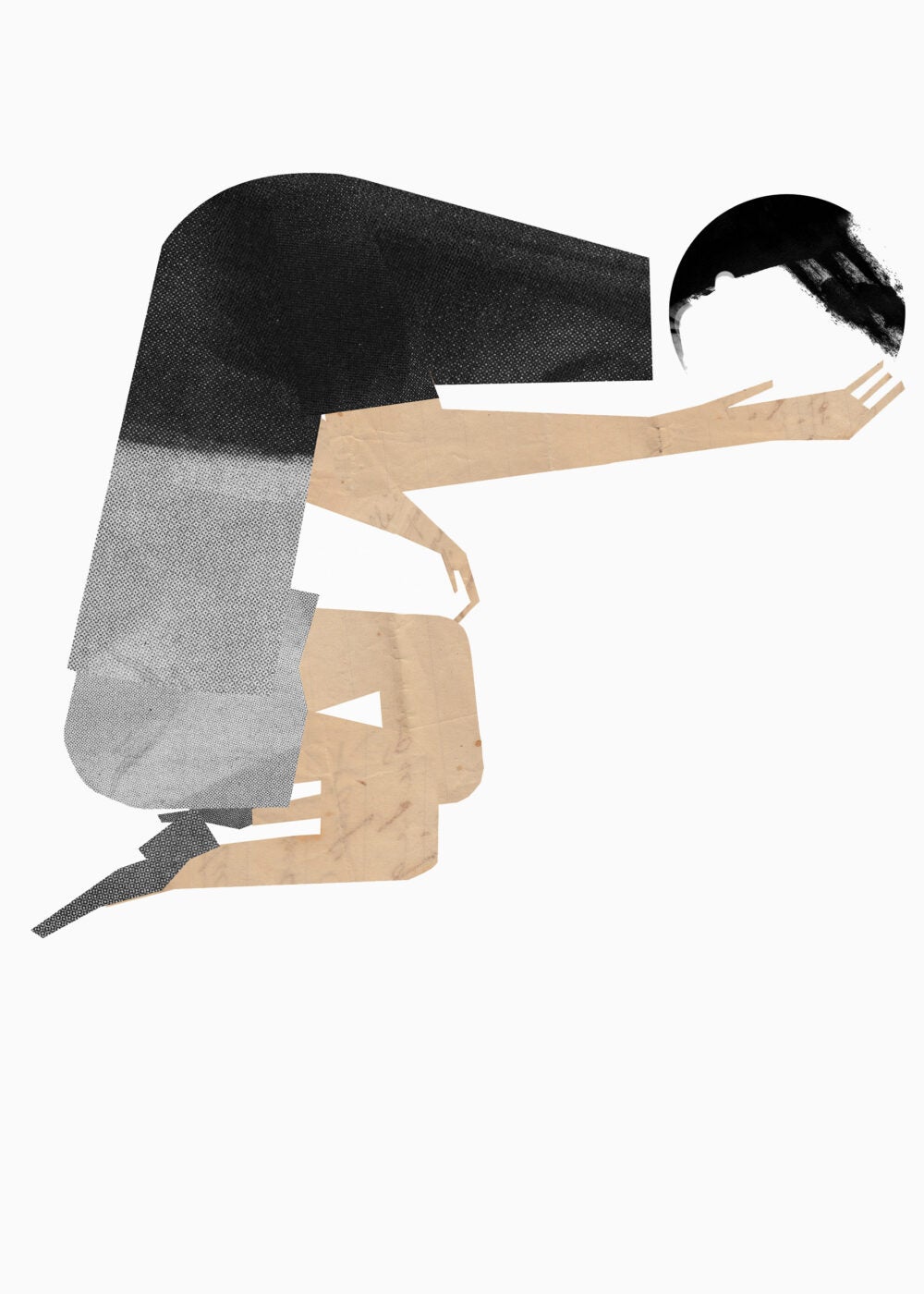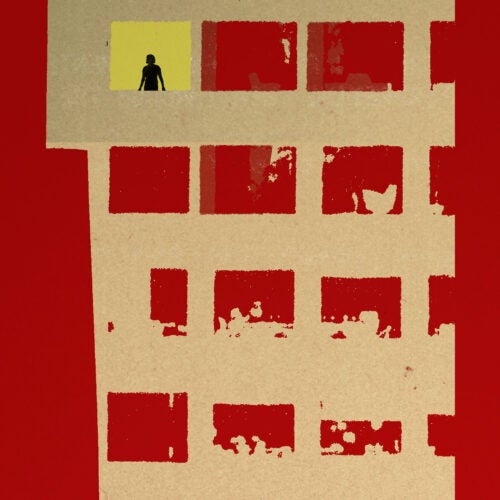COVID-19 isolation has undercut the human need for collective mourning, expert says

Illustration by Eddie Edwards
With more than 500,000 dead, the COVID-19 pandemic has created a nation touched by grief, compounded by the trauma of job loss, financial trouble, and everyday confusion, a mix that a Harvard psychologist said creates a complex and troubling picture of the country’s emotional landscape.
Christy Denckla, a research fellow at the Stanley Center for Psychiatric Research at the Broad Institute of MIT and Harvard and a postdoctoral fellow in the Harvard T.H. Chan School of Public Health’s Department of Epidemiology, said that with so many having died from the pandemic, few Americans at this point haven’t either lost a loved one to COVID-19 or at least know someone who has. Those losses amid an infectious disease mean the practices that society has developed over centuries — vigils for the dying, wakes, funerals, and other end-of-life rituals — that bring people together to mourn and support those closest to the deceased, are disrupted or suspended entirely.
Such rituals, she said, were created to help those involved acknowledge and process their loss, while giving and gaining support from loved ones. The rituals provide a language through which to talk about pain and sadness and provide strength and hope when needed most. Those facing pandemic-enforced isolation instead may have trouble processing what has happened, particularly if it occurs together with job loss or other displacements.
“In the mental health community, there is concern — there is a lot of concern — about the impact this is having,” Denckla said. “We are forced now to grieve alone and oftentimes in isolation. Parts of grieving happen alone, but parts of grieving happen in community, and, in the absence of that community, I am concerned with how people are coping with this loss right now.”
Denckla, whose work focuses on resilience following exposure to trauma, spoke Tuesday at a Facebook Live event, “The Coronavirus Pandemic: Grieving and Mental Health,” sponsored by The Forum at Harvard T.H. Chan School of Public Health and PRX’s The World.
Denckla said the long-term impact of the current situation may be something called prolonged grief disorder, in which people who are isolated and cut off from the normal grieving process find their lives impaired over time by unresolved grief.
“We’re sort of in a perfect storm, we worry, for long-term, clinically impairing conditions,” Denckla said.
The situation may be exacerbated in communities of color which have suffered even more from the pandemic. Denckla said she’s particularly concerned about the long-term impact on children who’ve lost parents, and those who are vulnerable who lost providers who supported them.
Denckla pointed out that the COVID-19 deaths have occurred on top of those that would normally occur, yet mourning has become complicated for everyone. This is also happening at a time when the U.S. mental health system is operating at capacity, Denckla said. Though the pandemic era’s rise of telehealth is seen as improving access to mental health services, Denckla said that her colleagues report being inundated by the demand for services.
“There has been so much loss during this time. People have lost jobs, lost livelihoods, lost celebrations — I’ve been to a few Zoom weddings — birthdays, holidays,” Denckla said.
Denckla said that compounded stressors increase the risk for an array of mental health conditions, such as anxiety, depression, suicidal thoughts, hopelessness, loss of interest in pleasurable activities, and interpersonal conflict.
“The [increased] burden on couples, on parents, on children and families has been quite remarkable; relationships are stressed,” Denckla said. “These compounded stressors are troubling.”
On the plus side, Denckla acknowledged that technology combined with creativity has provided an alternate outlet for many. Facebook posts about lost loved ones give friends and relatives a chance to express grief and support, while Zoom gatherings provide a way to be with each other, even if not in the same room.
Denckla said hospital clergy in some cases have donned protective gear and allowed loved ones to connect via video with dying loved ones when pandemic rules prohibit in-person visits. What is unknown, Denckla said, is how effective a substitute these digital practices are and whether they can help mitigate potential problems in the future.
Another hopeful development, she said, is the attention the pandemic has brought to the issue of mourning. With loss on such a scale, an issue that is often skirted in public discourse has been brought more centrally into the spotlight, with one organization proposing a White House office on bereavement care, another a bereavement bill of rights that allows relatives to see a body and details that the body be treated with respect. And yet all is not dour.
“What we’ve learned is that we are surprisingly resilient,” Denckla. “What I’m inspired by now is the collective conversation about the importance of grief, about the rights of the bereaved, about transforming social policy around loss and support, which can go a long way to reducing inequity.”

